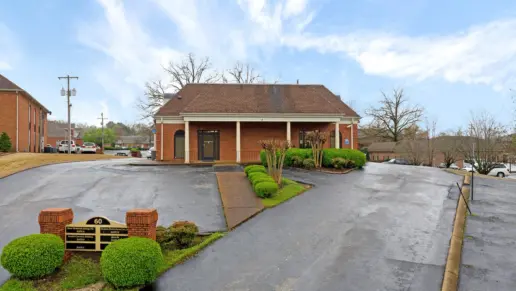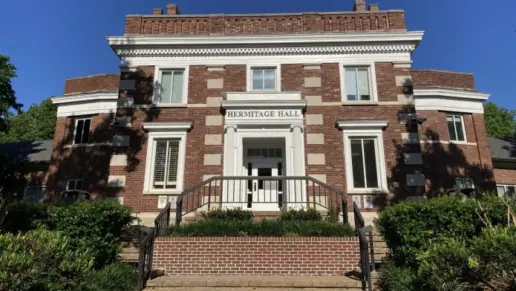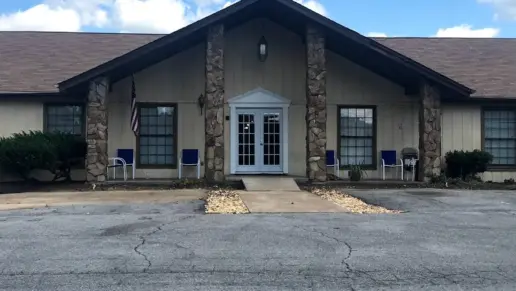this place is a nightmare! my brother went there on his own accord to get help with his alcohol addiction and they treated him like a criminal and a dog. He would get less than five minutes to eat food and could barely eat more than a bite. He would ask for water, and the ...
About Mirror Lake Recovery Center
Mirror Lake Recovery Center is located on 75 acres in Burns, Tennessee. The center has addiction treatment and mental health treatment for co occurring disorders. They treat adults 18 and older. Treatment costs vary depending on what type of treatment you need. They do accept most major health insurances including TRICARE.
They offer a 14 day medical detoxification before you start your recovery journey. Even through the medical detox you’ll begin group and individual therapy sessions. Getting through detox is the beginning of your recovery after which you’ll transition to the residential program.
In the residential program, you’ll live on the campus while receiving support for co-occurring disorders such as anxiety, bipolar, depression, and psychosis. In addition to individual and group therapy, you’ll have access to yoga, art, and equine therapies.
There’s a faith based track if you want to incorporate Christian values into your recovery. These include Bible study, meditation, journaling, and prayer.
If you’re a veteran of the military or on active duty, they have a program that caters to you. It’s run through the VA and the Community Care Network or CCN.
When you’re ready, you can step down to a partial hospitalization program that offers a less structured schedule than the inpatient program. After completing the partial program you’ll receive continued support with their aftercare programs.
One former client mentioned that the recovery center grounds are beautiful and the staff is great. Another client said it was tough work but the staff was caring and it was well worth it.
Latest Reviews
Rehab Score
Gallery

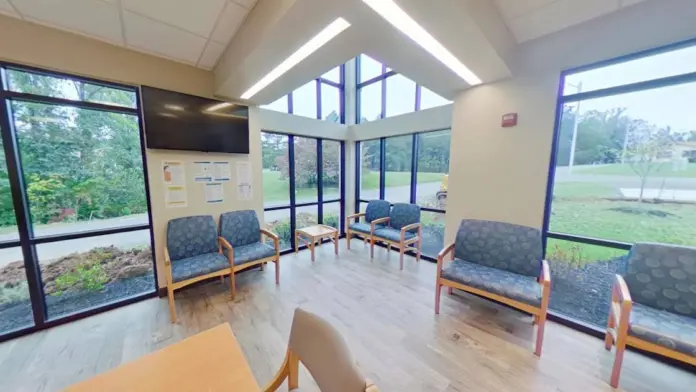
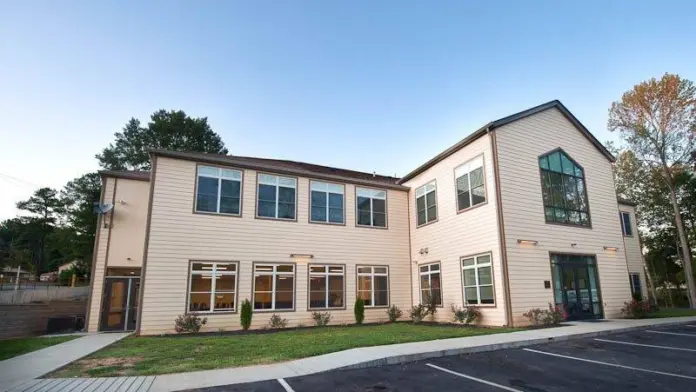
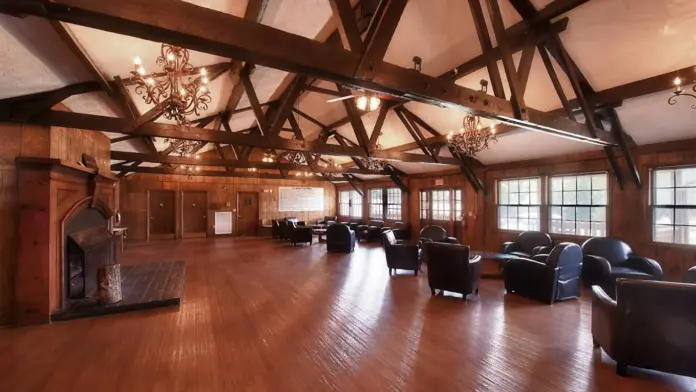
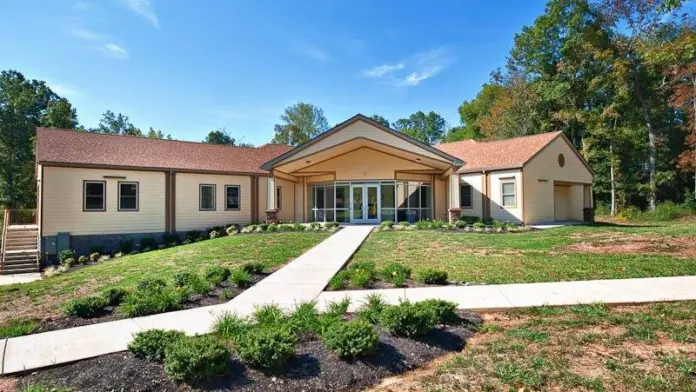
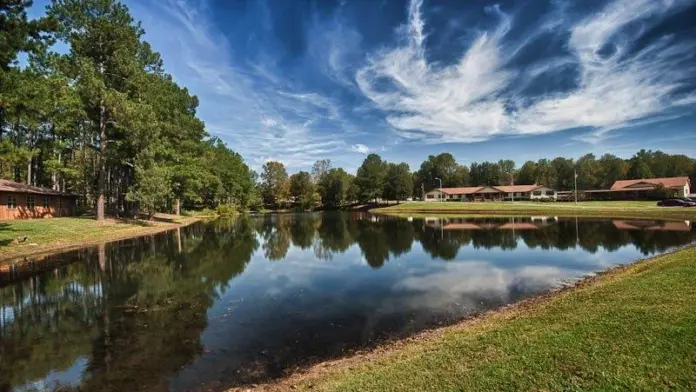
Location
Accepted Insurance
Other Forms of Payment
Private insurance refers to any kind of healthcare coverage that isn't from the state or federal government. This includes individual and family plans offered by an employer or purchased from the Insurance Marketplace. Every plan will have different requirements and out of pocket costs so be sure to get the full details before you start treatment.
Self-pay involves paying for treatment out of your own pocket. You can use savings or credit, get a personal loan, or receive help from family and friends to fund your treatment. If you don't have insurance or your insurance plan doesn't cover a specific program, self-pay can help ensure you still get the care you need.
Medicare is a federal program that provides health insurance for those 65 and older. It also serves people under 65 with chronic and disabling health challenges. To use Medicare for addiction treatment you need to find a program that accepts Medicare and is in network with your plan. Out of pocket costs and preauthorization requirements vary, so always check with your provider.
Military members, veterans, and eligible dependents have access to specific insurance programs that help them get the care they need. TRICARE and VA insurance can help you access low cost or no cost addiction and mental health treatment. Programs that accept military insurance often have targeted treatment focused on the unique challenges military members, veterans, and their families face.
Addiction Treatments
Levels of Care
Treatments
Many of those suffering from addiction also suffer from mental or emotional illnesses like schizophrenia, bipolar disorder, depression, or anxiety disorders. Rehab and other substance abuse facilities treating those with a dual diagnosis or co-occurring disorder administer psychiatric treatment to address the person's mental health issue in addition to drug and alcohol rehabilitation.
Substance rehabs focus on helping individuals recover from substance abuse, including alcohol and drug addiction (both illegal and prescription drugs). They often include the opportunity to engage in both individual as well as group therapy.
Programs


Clinical Services
Experiential therapy is a form of therapy in which clients are encouraged to surface and work through subconscious issues by engaging in real-time experiences. Experiential therapy departs from traditional talk therapy by involving the body, and having clients engage in activities, movements, and physical and emotional expression. This can involve role-play or using props (which can include other people). Experiential therapy can help people process trauma, memories, and emotion quickly, deeply, and in a lasting fashion, leading to substantial and impactful healing.
Research clearly demonstrates that recovery is far more successful and sustainable when loved ones like family members participate in rehab and substance abuse treatment. Genetic factors may be at play when it comes to drug and alcohol addiction, as well as mental health issues. Family dynamics often play a critical role in addiction triggers, and if properly educated, family members can be a strong source of support when it comes to rehabilitation.
Group therapy is any therapeutic work that happens in a group (not one-on-one). There are a number of different group therapy modalities, including support groups, experiential therapy, psycho-education, and more. Group therapy involves treatment as well as processing interaction between group members.
In individual therapy, a patient meets one-on-one with a trained psychologist or counselor. Therapy is a pivotal part of effective substance abuse treatment, as it often covers root causes of addiction, including challenges faced by the patient in their social, family, and work/school life.
Motivational Interviewing (MI) is a clinical approach to helping people with substance abuse issues and other conditions shift behavior in positive ways. It is more goal-oriented than traditional psychotherapy, as MI counselors directly attempt to get clients to consider making behavioral change (rather than wait for them to come to conclusions themselves). Its primary purpose is to resolve ambivalence and help clients become able to make healthy choices freely.
Amenities
-
Yoga Studio
-
Private Rooms
Accreditations

The National Association of Addiction Treatment Providers (NAATP) is a professional association that represents organizations in the field of addiction services. Founded in 1978, NAATP's mission is to advance addiction services and ensure that high-quality addiction treatment is available and accessible.
NAATP Member: Yes
Member ID: 1611

State Licenses are permits issued by government agencies that allow rehab organizations to conduct business legally within a certain geographical area. Typically, the kind of program a rehab facility offers, along with its physical location, determines which licenses are required to operate legally.
State License: Tennessee
Contact Information
999 Girl Scout Road
Burns, TN 37029











